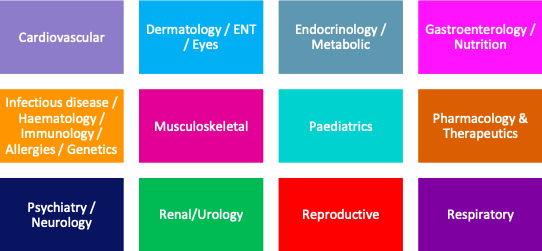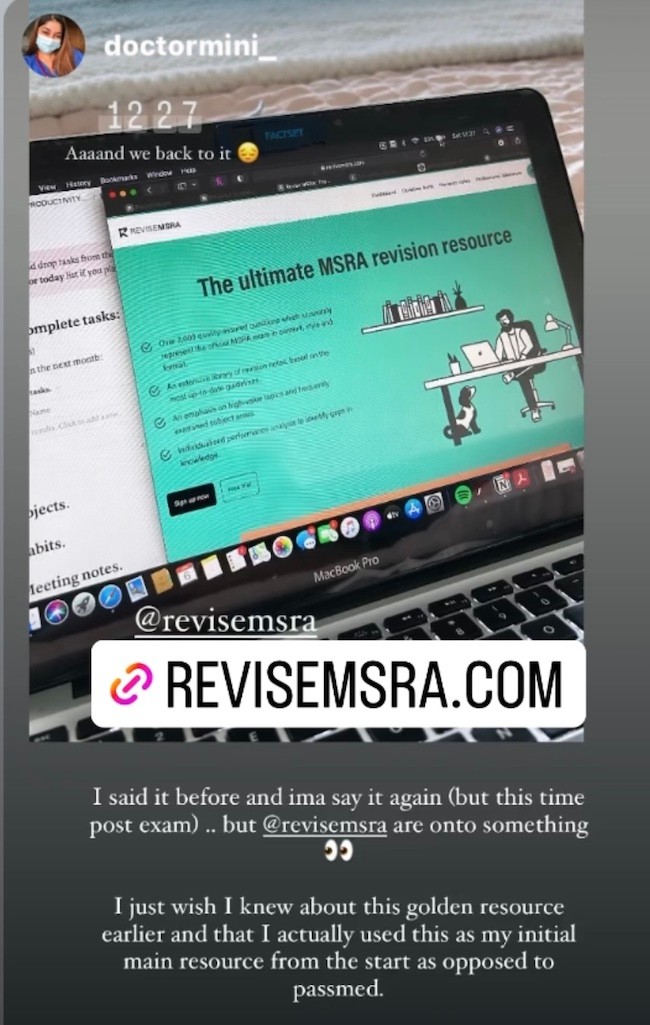Welcome to our MSRA exam study guide. Learn how to prepare, and find our top tips to maximise your score and get your 1st choice job.
For a deep-dive into the MSRA exam, covering everything you need to know, check out our complete guide to the MSRA. In this article we will cover:
1. How long you should study for the MSRA
2. How to best prepare for the MSRA exam to guarantee exam success
3. Which question bank you should use for the MSRA exam
4. How to tackle the Professional Dilemmas paper
5. MSRA Mock Exams - a must use resource (download our Unofficial MSRA Mock Paper for free here)
Introduction - How to Study for the MSRA
The MSRA has become an essential part of the speciality training application process for the majority of training posts. It is the only factor determining invite to interview for anaesthetics, ACCS, radiology, core surgical training, and is the sole determinant of an offer for GP and core psychiatry training. So a good score is crucial for securing an interview or offer for your first choice job and location. Especially with competition ratios as high as they've ever been.
How to Study for the MSRA exam
We've highlighted our top tips on how to prepare for the MSRA exam to maximise your chance of success.
Tip 1: How long to study for the MSRA?
The MSRA is a challenging exam. The main reason for this is due to the breadth of content tested. You may not have visited topics such as paediatrics or obstetrics and gynaecology since medical school.
For this reason, early preparation is essential. There is simply too much content to cram effectively for most candidates. We recommend revising for a minimum of 3 months, and ideally 4-6 months if possible, to improve your chances of MSRA exam success.

Tip 2: How Should I Study for the MSRA?
As above, the MSRA curriculum is extremely broad and you may not have covered certain topics since medical school. We therefore suggest that, before jumping straight into practice questions, it can be highly beneficial to review high yield topics and personal weak areas. Our revision notes are the perfect place to start with this, concisely summarising important topics in a digestible way, and based where necessary on up to date NICE/UK based guidelines (as is the exam!).
When you're ready, an MSRA specific question bank should form the core focus of your revision.
Tip 3: Which MSRA Question Bank to use
There are many question banks out there. The key is to find one that resembles the official MSRA exam questions as closely as possible. You'll notice that the stems are very short, concise and give limited information. SBAs are typically 40 words in length, with EMQs as short as 25 words. Check out the official MSRA past paper to see what we mean (though note, the complexity of questions here is notably easier than most questions on exam day).
This is what makes Revise MSRA different. We specialise exclusively in the MSRA exam, with a focus on creating questions that are as representative as possible of the official exam questions. Of course we're slightly biased, but we think we do this better than anyone else - and so do our past members! We launched in 2023/24 and so far the feedback has been fantastic! Check out what a few of our members thought below.. If you want to see for yourself, sign up for a free trial!


Tip 4. How to tackle Professional dilemmas
There's no getting around it. The MSRA Professional Dilemmas paper is hard, and not very popular with past (or future) MSRA candidates. The questions are ambiguous, frustrating and often contradictory. We always advise our members that the best way to prepare effectively for the Professional Dilemmas paper is to focus on official resources. These are (obviously) the most representative of the questions you will get on the day. Some question banks have a large number of practice PD questions, but the feedback on these is very poor - they can muddy the water and reinforce bad habits. So again, make the official resources the focus of your Professional Dilemmas preparation. We've collated everything you need in our PD resource bank.
Tip 5. MSRA Mock exams
No MSRA exam preparation would be complete without mentioning the importance of MSRA mock exams. The MSRA is an intense, rapid-fire exam. You'll have approximately 46 seconds for each Clinical Problem Solving question, and 114 seconds for each Professional Dilemmas question. It is essential to practice in exam conditions and get a feel for the timing and focus required.
We've produced this unofficial MSRA mock exam paper to add to your resource bank! For more representative mock exams, sign up here.
So that's it, our top tips on how to study for the MSRA, and achieve the best score possible. To summarise, the MSRA is a broad exam, and a competitive score requires thorough preparation. We advise at least 3-4 months, and suggest using a specialist MSRA exam question bank to ensure the questions are as representative as possible of the official questions. Make sure you take time to review revision notes for any weak areas, or topics you haven't covered for a while, and that your resources are up to date!
And finally, good luck! The fact that you're taking the time to read this means you're already one step ahead of the competition and giving yourself the best chance possible.
Before you go, make sure you check out the following resources:
- Ready to begin? Sign up here
